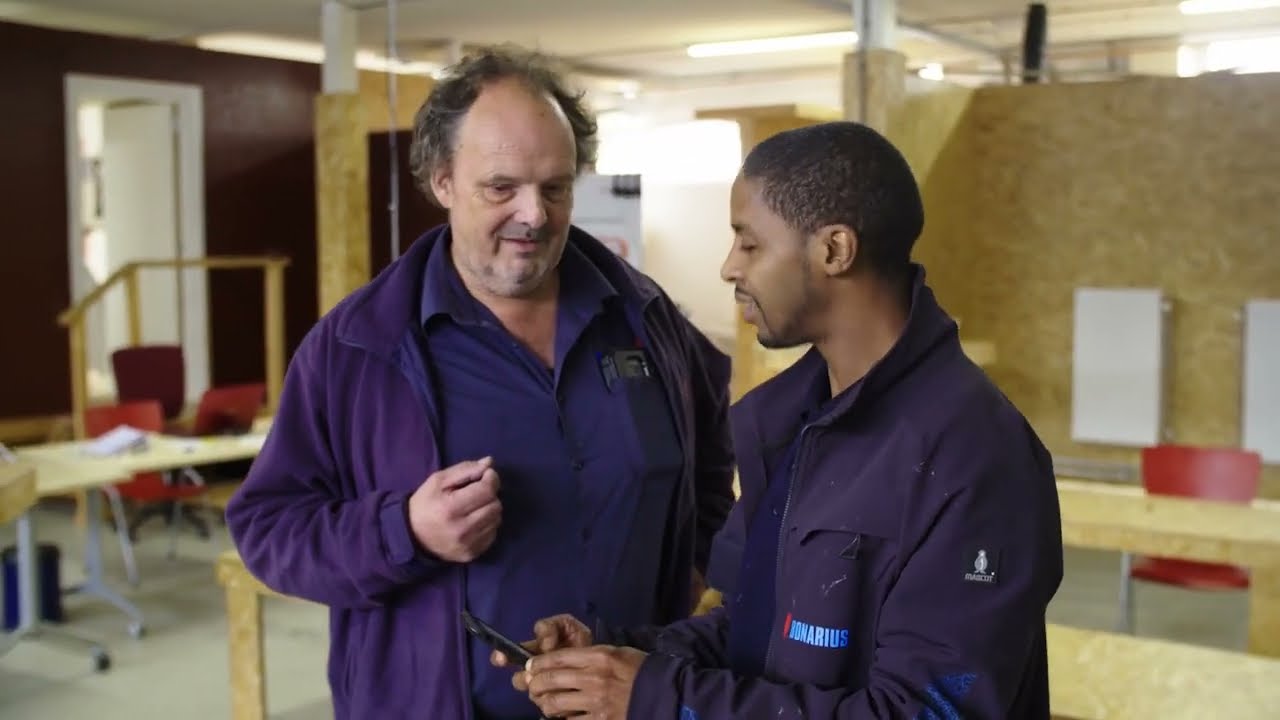
Bonarius is a central heating installation company with over 260,000 installations under management. They manage climate installations for housing corporations and investment companies
throughout the entire Netherlands. Due to the enormous growth in demand for maintenance engineers, Bonarius, in cooperation with VTI, WIJ techniek and the ROC, started a pilot for the MBO certificate ‘basic maintenance of gas appliances’, in which second-career engineers are trained to become full engineers within four months.
Early 2022, part of the training was supplemented by GPAL Academy. Short instructional videos were used to support the second-career engineers during the learning phase, and with great success. Meanwhile, three groups of second-career engineers have already successfully completed the training with GPAL, and the course length has also been reduced to one day and one evening a week.
“The special thing about the MBO certificate is that only four months after someone joins us, he or she can become an aspiring maintenance engineer who independently maintains central heating equipment. GPAL has contributed in part to the speed of our training.”
– Arjen, training coordinator Bonarius
Watch the promovideo of Bonarius below!
Half of the week new engineers ride along with an experienced mechanic to gain work experience, while the other half of the week they learn the tricks of the trade at the Academy.
At the Academy, the learning process is supplemented with video. Students have access to the GPAL app and learning booklets, in which subjects are listed with accessible QR codes. Once a student scans the QR-code with the GPAL app, an instructional video belonging to that topic pops up. Although some videos still need to be made, the videos that are already placed in the app are actively watched. By watching the instructional videos, students are generally better prepared for class.
“At the moment, the students watch the videos and then receive the assignments orally during the lesson. In the future, we also want to add the assignments to the app. The teacher will then make a short video instructing the students to repair something on a boiler and the students can practise this independently.”
– Arjen, training coordinator Bonarius
Making videos is also a simple task. Arjen and Matthijs (the practical teacher), regularly record new videos. Arjen makes convenient videos based on short PowerPoint presentations and Matthijs makes videos while explaining various central heating boilers.
“[Filming] is so simple, [filmen] has done that beautifully of course. You record a short video and can upload it immediately in the app in a structured way. And videos don’t always have to be perfect, you can slip up once in a while. That makes a video authentic, just as if you were in front of the class.”
– Arjen, training coordinator Bonarius
Meanwhile, three groups of students have already received the MBO certificate with a success rate of no less than 100%. There are also many other positive results, such as the shortening of the programme, a changing role for trainers and even future plans for GPAL are already being made.
Instructional videos shorten the learning phase and stimulate personal learning.
Watching instruction videos is popular among the second-career engineers at the Academy. Most pupils watch the videos enthusiastically, such as a few pupils who already watched 90% of the videos on the first evening.
“We see that students come to us with questions in class that they normally wouldn’t ask until much later. By watching the instruction videos they start to study the material earlier and that just works really well.”
– Arjen, training coordinator Bonarius
However, watching the instruction videos is not only more fun, but also speeds up the learning phase. Watching the video instructions in preparation ensures more recognition among the students during physical class, as some students can already demonstrate some knowledge before the class even starts. This makes it easier for educators to discuss the relevant materials in more depth, with many positive consequences.
“We are actually seeing learning material being added to the training by our trainers now, as the students are going through the material a lot faster by watching the videos. We have therefore now also decided to reduce the next groups to one day and one evening per week, instead of two days.”
– Arjen, training coordinator Bonarius
The role of the trainer: from classical teacher to coach
Students can also learn more at their own pace. As Arjan explains, sometimes there are clear differences amongst students in the same class. “But that is not necessarily a bad thing. Some students are simply faster and can now learn at their own pace, while others can receive more individual help and attention from a teacher.”
However, this also changes the role of the teacher. The teacher is able to recognise more quickly which students are not picking up the material or which students need more help. In the teacher’s new role as a coach, he or she can therefore focus more on helping individual students. In this way, learning becomes more personal and each student receives the guidance he or she needs.
For now Bonarius will enthusiastically continue to record videos and after the summer new classes for the MBO certificate will start. To be continued…